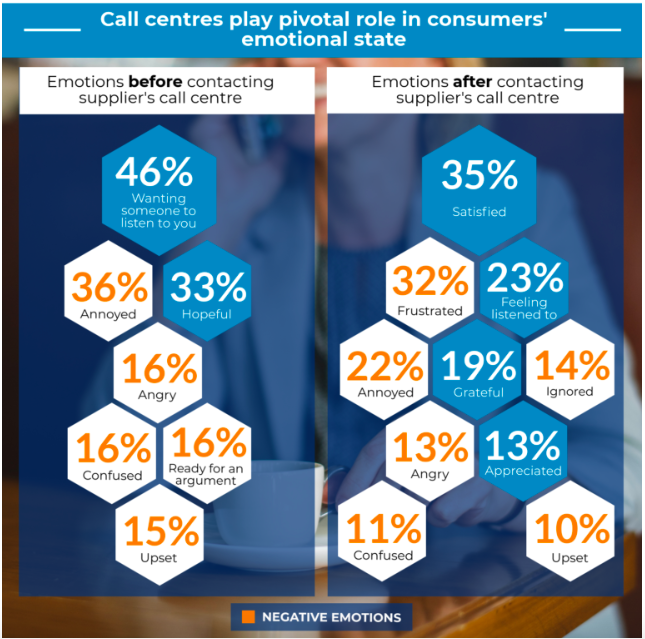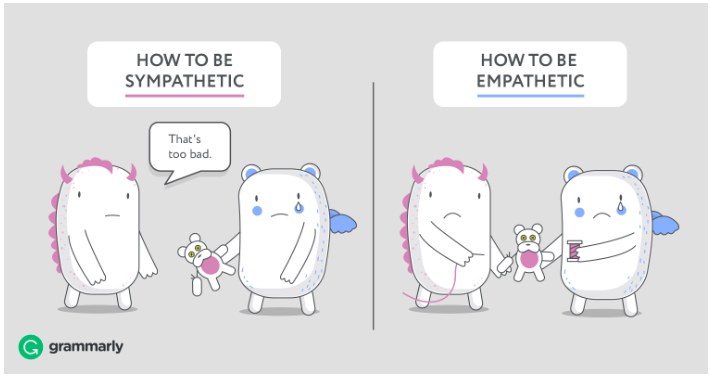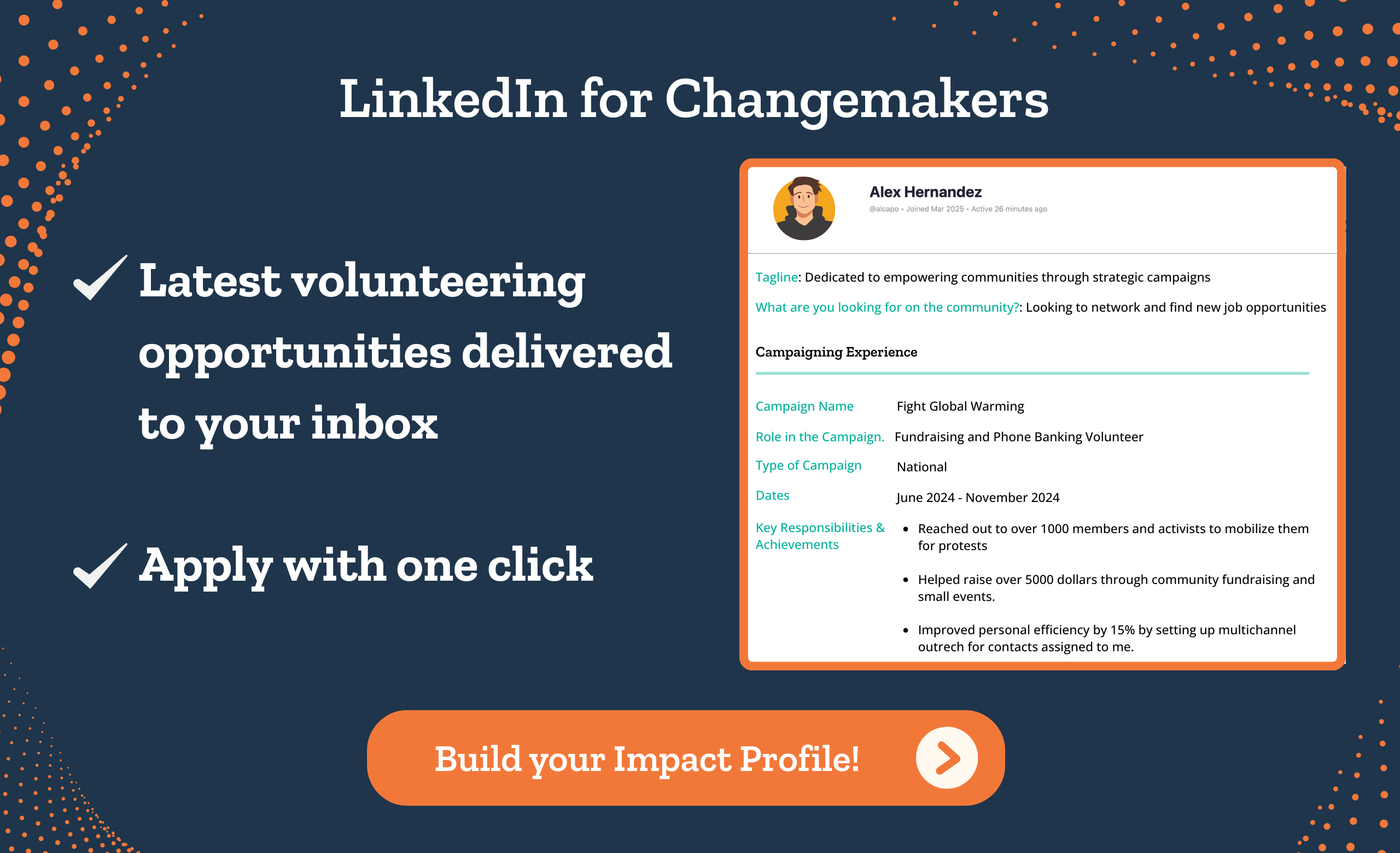Table of Contents
More than ¾ th of customers say they will leave a company if they receive poor service. That ‘poor service’ can result from your call center agent not handling customer service right or call center agent skills that aren’t polished.

Pic courtesy: CallMiner
This is why hiring the right call center agents – who are skilled in handling prospects over a call and know the ins and outs of your products and services can help you deliver better customer experience.
So, what are the most important skills for a call center representative?
This article will help you in all those areas.
- We will look at the top call center agent skills, so you have a guideline to help while hiring.
- We will see what you can do as a company to help your agents improve on these calling center skills.
Read Also: Call Center Management 101: How To Improve Results
What skills do successful call center agents need?
To leave your customers with an excellent experience, implement these call center agent skills.
1. Empathy as call center agent skills
No, it is different from kindness, sympathy, or friendliness. Google defines empathy as “the ability to understand and share the feelings of another.”

Credits – Grammarly
If your call center agent is handling customer support, in addition to knowing the ins and outs of your products and services, handling a call with empathy would mean understanding prospects or customers’ problems and helping them.
Here are a few empathetic statements:
- “I completely understand how you feel. I would be frustrated, too. Let me see what I can do.”
- “I am extremely sorry to hear that. I will rectify that and get back to you with an update.”
- “Oh, I’m sorry to hear that! I’ll make sure that doesn’t happen again.”
In all the above statements, a successful call center agent not only identifies with the caller’s emotions but also promises a course of action that resolves them.
Empathy adds a human touch to your conversations and shows your customers you care about solving their problems. It helps you build a rapport with your customers and is crucial for maintaining strong customer relationships.
How to gauge this while hiring?
Empathetic candidates usually make the prospects feel listened to and have a positive calling experience. During mock calling sessions during the interview, you can check with your team how the candidate made them feel. If the overall calling experience for them was positive, then chances are that the candidate had handled the call with empathy.
Another way to gauge empathy is to see how involved the candidate is in actually helping the prospect. A truly empathetic agent will go the extra mile to understand the problem and provide the right solution for it.
2. Quick-thinking call center agent skills

Not everything goes according to a script. Of course, you will train your agents to know the ins and outs of your business, how to solve a problem, etc. However, a sales agent would find that the prospect they are talking to has an objection that is not detailed in the script. Similarly, a customer support agent could encounter an issue that they cannot identify.
However, in both cases, your call center agents do not have the luxury of time. They have a prospect waiting in the line, expecting a solution.
In such cases, the call center agent has to think quickly to come up with a satisfactory answer to serve your customer in the best way possible. It could be as simple as modifying the pitch to suit the prospect better. Or, in the case of customer service call center skills, getting a senior agent on call who could resolve the situation.
A successful call center agent’s quick thinking will help provide your customers with a first-call resolution. Not only will this improve customer satisfaction, but also boost the efficiency of your call center overall.
How to gauge these call center agent skills while hiring?
Is the candidate able to provide unique solutions to the problem? In a mock call center session, give the candidate a situation that is not in the script, and see how they react to it.
See if the candidate can think of an apt solution.
However, if the candidate directs the prospect to another contact, that can be counted as a success too.
3. Ability to retain information: call center agent skills

No call center agent takes up campaigns without basic training. Depending on the kind of calls they are expected to handle, the training can range from simple to highly detailed.
Now, unless the agent is able to retain all the information and use it on the call, they would struggle to deliver.
Information retention need not just be about your organization, it can also be about the problem your customer is calling with.
Say a customer gives the agent his details and also outlines the problem. If your agent is not able to retain the information, then they would have to request it again – making the customer repeat themselves. That, right there, is the poor customer experience that works against you.
How to gauge this while hiring?
This one is rather easy to assess. During a mock call center session, overload the candidate with information about the prospect on the line, the problem they are facing, etc.
A good candidate will not only retain a majority of the information but will also have a knack for retaining only the key information.
4. Attention to detail

Learning about customer preferences, knowing the best ways an issue can be resolved, or simply paying attention to the caller are all essential call center job skills your agent needs to have.
This is different from the ability to retain information (seen previously) because the details are obtained not from the current call but from previous interaction with the prospect.
For instance, say your agent is on the line with a customer who has called in for the 3rd time. Even if the same agent is not handling the call, they can refer to the previous call notes to provide a better experience.
E.g. “You had also mentioned an issue with deliverability – is that still a problem?”
The details can also help in switching the sales pitch or the ask to the prospect.
E.g., “I see your team is spread across 80 countries – I would recommend opting for the Enterprise plan.”
In both these instances, you show the prospect that they are more than just a voice on the line – that you are paying attention to even the minute details beyond what was said on the call. It helps you solve their issues better and also builds a relationship with them.
How to gauge these call center agent skills while hiring?
The CV and cover letter go a long way in showing how much attention the candidate pays to the small details.
Yes, those CVs with glaring typos and errors are automatically void. However, you can also dig deeper. E.g. see if the cover letter has been customized to your company (and the job role in particular). If it refers to (and resonates with) the job description you have outlined, then you know that this candidate has definitely been paying attention and can translate the skill to calls and a successful call center.
5. Being ‘Tech-savvy’

Now, for a lot of customer support roles, being tech-savvy is essential. However, even for non-support call center agents, being tech-savvy, to some extent is important.
Your call center agents should be able to handle your call center software without too many problems or even better.
This is especially needed for nonprofits and advocacy organizations, where many of their agents are usually one-time volunteers. So to get the most out of their time, it would work in your favor if they can learn how to make the calls, with as little training as possible.
How to gauge these call center agent skills while hiring?
Simple. Check their previous experience to see the kind of tools they have handled. In case the candidate is a fresher, ask them to navigate an easy call center software by themselves or with minimum intervention.
Both these will give you an idea of how well the candidate can adapt to the tools you use for your calling campaigns.
Make Your Agents’ Job Easy: Call Center Mobile App: Reduced Cost, Easier Onboarding, and Optimized Calling Experience
6. Organizational call center agent skills

This could also mean data-entry skills for call center jobs. Often your customer reveals a wealth of information about them during a call. Your call center agent should be organized enough to make a note of it.
If the role of the call center agent is to collect and gather customer information like a survey, then it is even more important that they are organized.
How to gauge these call center agent skills while hiring?
In one of the interview rounds, you can organize a mock call with a prospect online. During this call, you can observe how the candidate records information (and also what sort of information they record).
A strong candidate would automatically ask you which tools to use to record the info. You can see these agents making notes even after the call has ended so that the information is not lost.
If the candidate is a fresher, they might not know about note-taking tools. In that case, they would resort to a pen and paper to jot down information. That is also a good indicator that their call center skills and abilities in terms of being organized can be cultivated.
7. Effective communication for call center agent skills

A successful call center agent should be able to get their point across with minimal effort. Yes, speaking clearly and having a good vocabulary is important. But what is even more important is understanding what the customer is trying to say and then resolving the issue.
How to gauge this while hiring?
See how well your candidate is conveying a piece of information during your mock call.
Often your call center agents will have to send follow-up emails (and texts) to their prospects. In such cases, check their written communication skills as well.
Read Also: Call Monitoring: Why Does Your Call Center Need It?
8. Performing under pressure

A call center agent is not just focused on providing value to the customer. They have to possess excellent problem-solving skills and solve problems under time constraints.
So working well under pressure, learning to separate their emotions, and keeping their focus on the end goal is an important skill to have.
Otherwise, the efficiency of your call center would go down. You would have call center agents who are fast-facing burn-out while not getting results.
How to gauge this call center agent skill while hiring?
Simulate a stressful call center setup and allow the candidate to answer a few calls. They will have high targets to meet.
Here are a few questions you can tick off:
- Were they calm and collected,
- Did they manage to remain polite,
- Were they able to listen to the actual problem instead of responding to a prospect’s emotion?
9. Being Friendly

Yes, in this context, it is a skill. A friendly call center agent will definitely sound more accessible to your customers than an agent who is highly pedantic.
Being friendly does not mean indulging in idle chit-chat. It means projecting warmth and friendliness to your customers.
That means, responding with a smile (yeah, it makes a difference), using layman terms to explain a problem (and not slip into jargon), and being human throughout the call.
How to gauge this during hiring?
The assessment could be as simple as counting the number of times they smiled during the call. Or, you could give your mock prospect to quantify how friendly the candidate was over the call.
You can also see if the candidate is able to balance ‘small talk’ with the heart of the conversation over the call.
10. Active listening call center agent skills

Instead of passively hearing what the customer on the line is saying, your call center agent needs to be fully immersed in the conversation.
That means understanding fully what your prospect has to say and then formulating a response. It also means listening to the sentiment behind the words so that you can provide a better solution.
E.g., “I don’t think I need this product right now”
To a new call center agent, this would seem like a refusal.
However, a call center agent who is listening actively would pick up on the words ‘think’ and ‘right now’ and understand that the customer is just uncertain about the products and services.
Here are a few more tips on using active listening to improve the performance of your calls.
How to gauge this while hiring?
This is a tough one to assess. That is because a candidate’s listening skills can vary according to the situation.
An already stressed candidate (who is chasing deadlines), may listen poorly compared to a candidate who is not similarly burdened.
The interview session can give you a guideline on their active listening skills based on body language and how quickly they grasp the problem. This can always be improved upon during training sessions.
How can companies enable call center agents to perform better?
Despite having the above call center agent skills, a call center agent can always improve his performance. Maybe they can finish the call sooner, solve the problem earlier, or even win over a client despite a goof up.
Here’s how you can help.
1. Training
Give them basic training about your organization – whom to approach for help, how to solve a particular situation, etc. This will help them handle the calls with more ease and efficiency.
You can also conduct regular training sessions on improving their skills.
2. Visibility of the company’s activities
A call center agent cannot be left in the blind about what your company is doing. If a prospect has more questions on any initiative, the agent should guide them to the right team.
3. Investing in good software
Use a call center software that caters to your unique requirements.
For instance, in CallHub’s call center software, a manager can shadow an agent’s calls (and even jump in) when required. Similarly, an agent can send out texts with additional information to the prospect while still on a call with them.
4. Clear scripts and guidelines
It is important to make your scripts as detailed as possible. You can delve into past recorded calls and your knowledge of a customer journey to account for every eventuality.
In case the agent is unsure about how to handle a situation, your script should provide guidelines on how to act.
5. Repeat wellness checks to combat burnout
The well-being of your employees is also your responsibility. If you want them to be focused on the bottom line (revenue, conversions, lesser turnaround time), you need to put their interests first.
A simple way to do that would be to conduct fun events and training sessions at regular intervals.
Takeaway
These top call center representative skills that make an exceptional call center agent can be nurtured and cultivated by you as long as the candidate has an appetite to learn and grow.
Hopefully, this post helps you with both.

